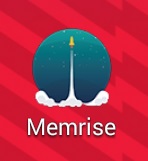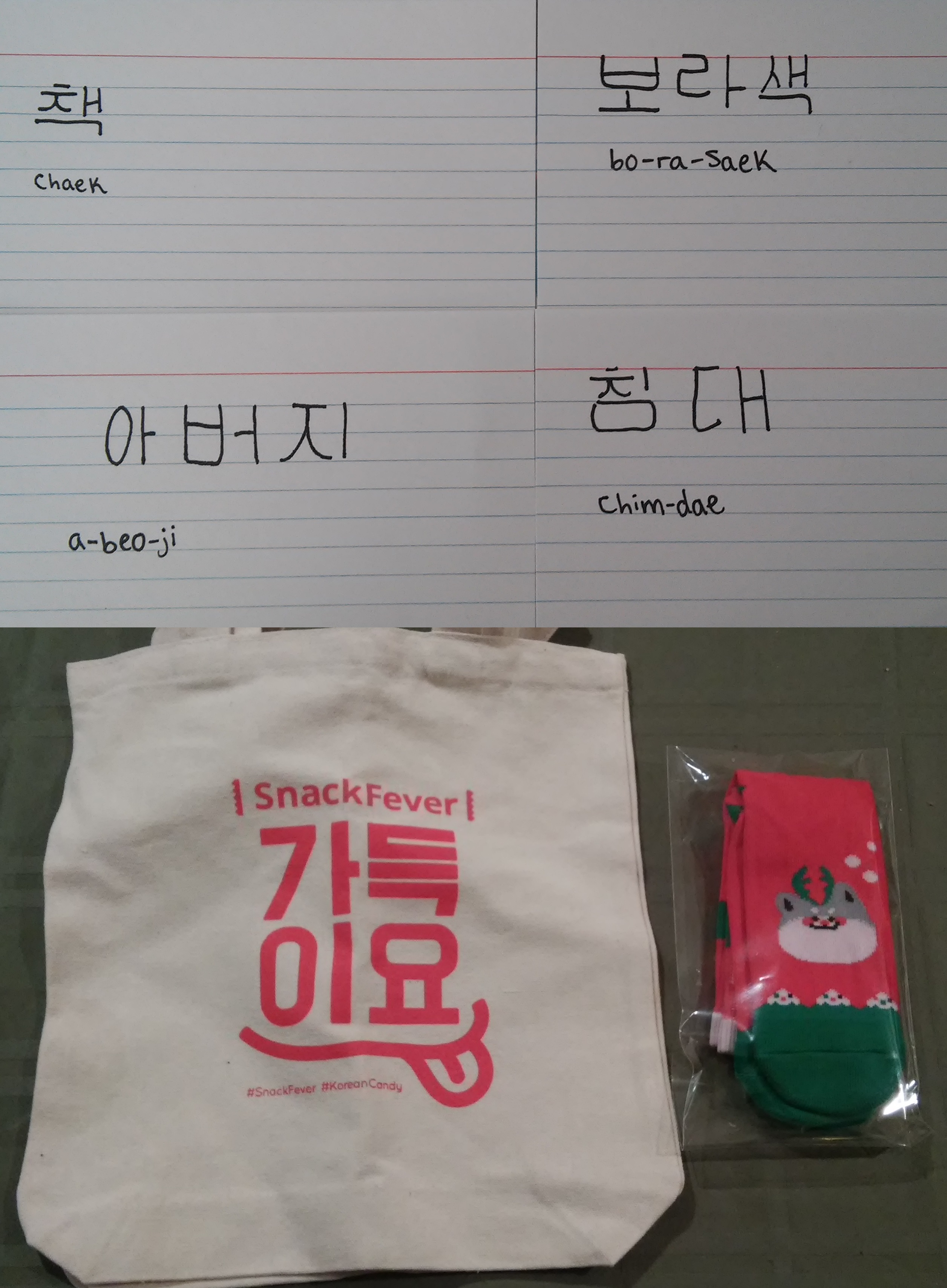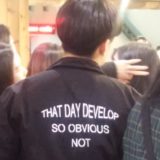The 4th (and 3rd) Water Stop in the Couch to Korean Challenge
 There is an English idiom “to drink from the firehose,” which means to attempt to make some sense from an overwhelming quantity of information. This is a perfect metaphor for the past couple months of the Couch to Korean Challenge, as the Korean firehose sprayed me straight in the face while I tried to gulp down enough water (but no water meat) to keep plodding through the heat of the summer. In the process I blew straight through the 3rd scheduled water stop without realizing it. So this week I will turn down the hose, take a short rest for the 4th water stop, and summarize the progress since the second water stop.
There is an English idiom “to drink from the firehose,” which means to attempt to make some sense from an overwhelming quantity of information. This is a perfect metaphor for the past couple months of the Couch to Korean Challenge, as the Korean firehose sprayed me straight in the face while I tried to gulp down enough water (but no water meat) to keep plodding through the heat of the summer. In the process I blew straight through the 3rd scheduled water stop without realizing it. So this week I will turn down the hose, take a short rest for the 4th water stop, and summarize the progress since the second water stop.
It has been a little over 7 months since I kicked off the Couch to Korean Challenge with the goal of learning as much Korean as possible within one calendar year. The Lexplorers team is currently planning a trip to Korea in April 2018, so if I extend the Challenge from 12 to 14 months, then I am almost exactly halfway to the finish line (making this a perfect time for a water stop). It is slightly unfair to the competitors to move the finish line in the middle of a race, but the reality of the Korea trip on the horizon is a much better motivator than an arbitrary date selected when the Couch to Korean Challenge started.
As I progress through the Challenge, I try to schedule study sessions of at least 15 minutes every day (ideally at least an hour), and in the 72 days since the 2nd water stop I succeeded on 65 days (with the 7 non-study days falling during a week-long vacation at the beach). In all, since the second water stop I logged a total of 109.5 hours of Korean study, bringing my total study time to 215 hours through the first 4 water stops. That averages out to roughly 1 hour per day over the 7 month period, but the pace of the Challenge has picked up recently, with 60% of the study hours coming over the past 3 calendar months.
In the first 100+ hours of Korean study (through the second water stop), I focused on mastering the Korean writing and sound systems, establishing a solid understanding of the basic grammar, and learning about 400-500 words of vocabulary. In this second 100+ hours, I worked intensively on building my active vocabulary to about 2,000 words. This combined with additional grammar study has left me well-positioned for the focus of the second half of the challenge: reading real Korean books (vs. textbook sentences) and putting it all into real-world practice with conversation.
Lexplorers posts during this phase of the Couch to Korean Challenge:
- Some Useful Korean Vocabulary Resources
- Water Meat and New Gold: Fun With Korean Vocabulary
- What We Did On Our Summer Vacation
- Korean Resources
Below I give the breakdown by category where I have spent the study time so far, with the current status of each category.
- Language basics and resources: The history of the Korean language and its language family, including the culture and history of Korea. The writing system and the mapping from written characters to spoken sounds. Phoneme inventory and phonology. Available resources for learning Korean.
- Time: 4 hours (28.25 hours total to date)
- Progress and Status: I continue to try out and evaluate Korean language resources, currently focusing on grammar and vocabulary resources.
- Grammar: Studying syntax, morphology, and other grammar details
- Time: 29.5 hours (68 hours total to date)
 Status: I completed my progress through 3 Korean grammar resources to solidify the Korean grammar fundamentals. I had previously worked through the grammar sections of all 15 chapters of Elementary Korean, and during this phase I reviewed the grammar points and read through all the example sentences in the book while listening to the corresponding audio recordings. In addition, I worked through all 51 lessons in the 3 courses on the Korean From Zero site and the 50 lessons in Units 1 and 2 on the How to Study Korean site. The grammar I have learned and practiced so far places me roughly in the Intermediate to Advanced Intermediate level, but it is important to note that this has all been study of written grammar and example sentences. While I am comfortable parsing most written sentences I come across (and noting new vocabulary words and grammar items to follow up on), my understanding of spoken sentences is still almost zero.
Status: I completed my progress through 3 Korean grammar resources to solidify the Korean grammar fundamentals. I had previously worked through the grammar sections of all 15 chapters of Elementary Korean, and during this phase I reviewed the grammar points and read through all the example sentences in the book while listening to the corresponding audio recordings. In addition, I worked through all 51 lessons in the 3 courses on the Korean From Zero site and the 50 lessons in Units 1 and 2 on the How to Study Korean site. The grammar I have learned and practiced so far places me roughly in the Intermediate to Advanced Intermediate level, but it is important to note that this has all been study of written grammar and example sentences. While I am comfortable parsing most written sentences I come across (and noting new vocabulary words and grammar items to follow up on), my understanding of spoken sentences is still almost zero.
- Vocabulary: Studying word lists and flashcards to learn new words
- Time: 60 hours (92 hours total to date)
 Status: The bulk of my time during this period was spent trying to aggressively expand my Korean vocabulary, which is by far the most important aspect of learning any language. I spent a lot of time with the Memrise app (see our earlier Lexplorers reviews of Memrise here and here), learning and practicing lists of words from two primary sources that were easily available in Memrise with audio for each word: 1) a list of the 500 most common Korean words (according to the TOPIK guide) and 2) the roughly 1600 words from the first 2 units on the How to Study Korean site. In addition, I studied vocabulary using several other sources (as described in detail in the Lexplorers post Some Useful Korean Vocabulary Resources). Taking into account some overlap between the word lists, as well as accepting that some of the words are not quite fully “mastered,” I would estimate my current active vocabulary at about 2000 Korean words.
Status: The bulk of my time during this period was spent trying to aggressively expand my Korean vocabulary, which is by far the most important aspect of learning any language. I spent a lot of time with the Memrise app (see our earlier Lexplorers reviews of Memrise here and here), learning and practicing lists of words from two primary sources that were easily available in Memrise with audio for each word: 1) a list of the 500 most common Korean words (according to the TOPIK guide) and 2) the roughly 1600 words from the first 2 units on the How to Study Korean site. In addition, I studied vocabulary using several other sources (as described in detail in the Lexplorers post Some Useful Korean Vocabulary Resources). Taking into account some overlap between the word lists, as well as accepting that some of the words are not quite fully “mastered,” I would estimate my current active vocabulary at about 2000 Korean words.
- Listening comprehension: Listening to instructional recordings, news, and other Korean audio sources to build aural comprehension
- Time: 13.25 hours (24 hours total to date)
- Status: My listening time during this phase consisted of two sources, both of which were purely instructional sources (vs. “real” Korean audio such as news or movies or actual conversation, which will ultimately be much more important for true listening comprehension). First, since the Memrise app integrates audio for each vocabulary item, I did a lot of listening to individual words as I studied them in Memrise. Second, I spent some time listening to recorded sentences that correspond with various grammar books or textbooks, such as Elementary Korean. The first source may better be classified as vocabulary study, and the second source as grammar study, but since both did involve significant time with audio sources, I wanted to record a portion of the time as listening comprehension practice.
- Reading comprehension: Reading Korean texts to solidify grammar and vocabulary
- Time: 2.75 hours (2.75 hours to date)
- Status: In addition to continued reading of sample sentences in the grammar lessons, I have started to (very slowly) read some real Korean books. This is the category where I expect to spend the most time in the next phase of the Challenge.
- Conversation: talking with native Korean speakers to practice speaking and listening
- Time to date: 0 hours
- Status: nonexistent
My plan for the next phase of the Couch to Korean Challenge is to focus on reading Korean books and to seek out good sources for listening comprehension and perhaps conversation. As time allows, I will also continue to work on writing up reviews of the resources that I have used so far during the Couch to Korean Challenge (as updated on the Korean Resources page).
Share this Lexplorers post:








